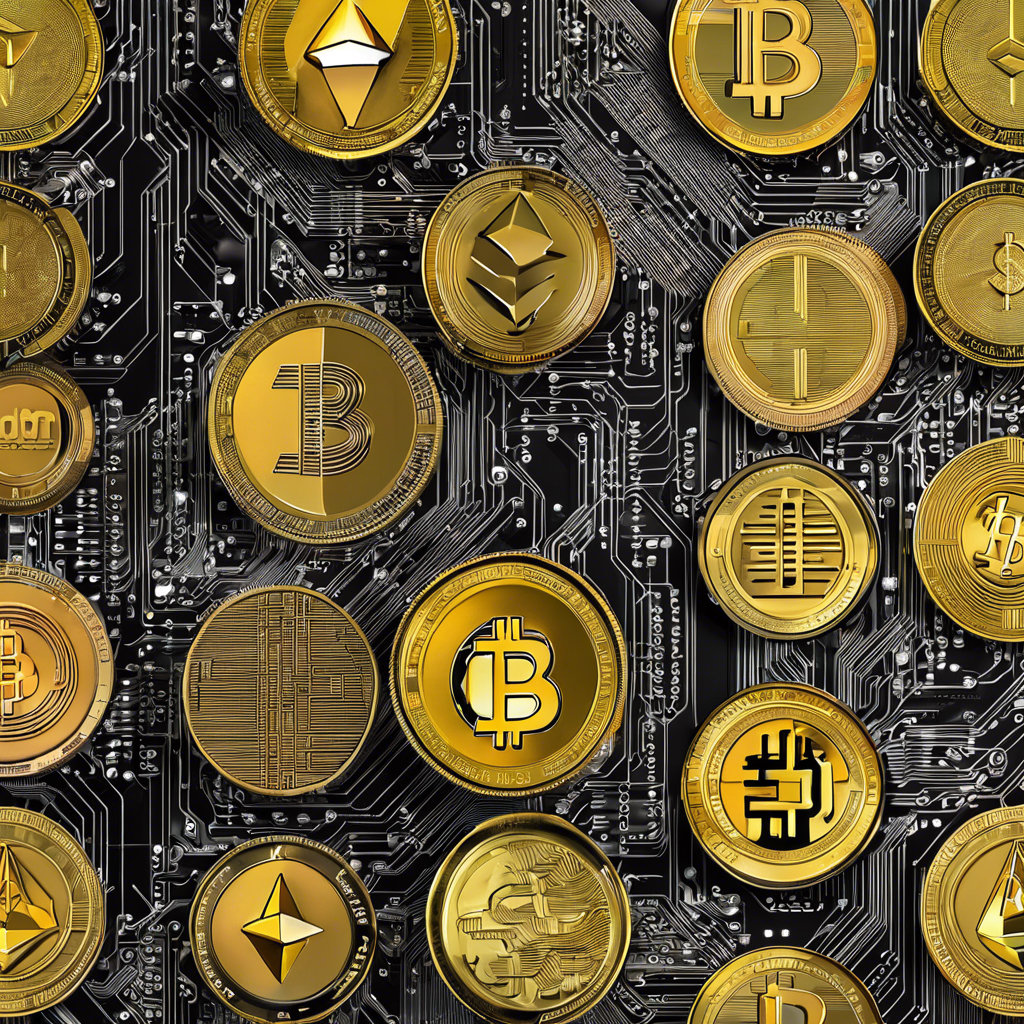Cryptocurrency List
Cryptocurrencies have taken the financial world by storm in recent years, offering a decentralized and secure way to conduct transactions online. With thousands of digital currencies available in the market, it can be overwhelming for investors and enthusiasts to keep track of all the options. In this article, we will explore a comprehensive cryptocurrency list that includes some of the most popular and promising coins in the market.
1. Bitcoin (BTC): Bitcoin is the first and most well-known cryptocurrency, created by an anonymous person or group of people using the pseudonym Satoshi Nakamoto in 2009. It remains the largest cryptocurrency by market capitalization and has paved the way for the development of other digital currencies.
2. Ethereum (ETH): Ethereum is a decentralized platform that enables developers to build and deploy smart contracts and decentralized applications (dApps). It has quickly gained popularity for its innovative technology and active community.
3. Binance Coin (BNB): Binance Coin is the native cryptocurrency of the Binance exchange, one of the largest cryptocurrency exchanges in the world. It is used to pay for trading fees on the platform and participate in token sales.
4. Cardano (ADA): Cardano is a blockchain platform that aims to provide a more secure and scalable infrastructure for the development of decentralized applications and smart contracts. It is known for its focus on research and academic rigor.
5. Solana (SOL): Solana is a high-performance blockchain platform that supports fast and low-cost transactions. It has gained attention for its scalability and ability to handle high volumes of transactions.
6. Ripple (XRP): Ripple is a digital payment protocol that enables fast and low-cost cross-border transactions. It is designed to facilitate international money transfers between financial institutions.
7. Dogecoin (DOGE): Dogecoin started as a meme cryptocurrency but has since gained popularity for its active community and charitable initiatives. It is often used for tipping and small transactions.
8. Polkadot (DOT): Polkadot is a multi-chain blockchain platform that enables different blockchains to transfer messages and value in a secure and trust-free manner. It aims to create a more interconnected and interoperable blockchain ecosystem.
9. Chainlink (LINK): Chainlink is a decentralized oracle network that connects smart contracts with real-world data. It enables smart contracts to securely interact with external data sources and APIs.
10. Litecoin (LTC): Litecoin is a peer-to-peer cryptocurrency created by Charlie Lee in 2011. It is often referred to as the silver to Bitcoin’s gold and is known for its fast transaction speeds and low fees.
11. Uniswap (UNI): Uniswap is a decentralized exchange (DEX) that allows users to trade a wide range of ERC-20 tokens directly from their wallets. It has gained popularity for its user-friendly interface and liquidity provision mechanisms.
12. Terra (LUNA): Terra is a blockchain platform that aims to create a price-stable cryptocurrency for global payments. It uses a dual-token system to maintain stability and enable fast and low-cost transactions.
13. VeChain (VET): VeChain is a blockchain platform that focuses on supply chain management and product authentication. It aims to improve transparency and traceability in various industries.
14. Filecoin (FIL): Filecoin is a decentralized storage network that enables users to rent out their excess storage space and earn Filecoin tokens in return. It aims to create a more efficient and secure way to store and retrieve data.
15. Aave (AAVE): Aave is a decentralized lending platform that allows users to borrow and lend cryptocurrencies without the need for intermediaries. It uses smart contracts to automate the lending process and ensure security.
16. Tezos (XTZ): Tezos is a blockchain platform that enables self-amendment and on-chain governance. It allows stakeholders to vote on protocol upgrades and improvements, creating a more democratic and flexible ecosystem.
17. Stellar (XLM): Stellar is a blockchain platform that focuses on cross-border payments and remittances. It aims to provide fast and low-cost transactions for individuals and businesses around the world.
18. Polygon (MATIC): Polygon is a scaling solution for Ethereum that aims to improve the network’s scalability and reduce transaction costs. It provides a framework for building and connecting Ethereum-compatible blockchains.
In conclusion, the cryptocurrency market is vast and diverse, offering a wide range of digital assets for investors and users to explore. This cryptocurrency list provides a glimpse into some of the most popular and promising projects in the industry, each with its unique features and use cases. As the blockchain technology continues to evolve, new cryptocurrencies are likely to emerge, shaping the future of finance and decentralized applications. Stay informed and stay curious as the world of cryptocurrencies continues to unfold.
